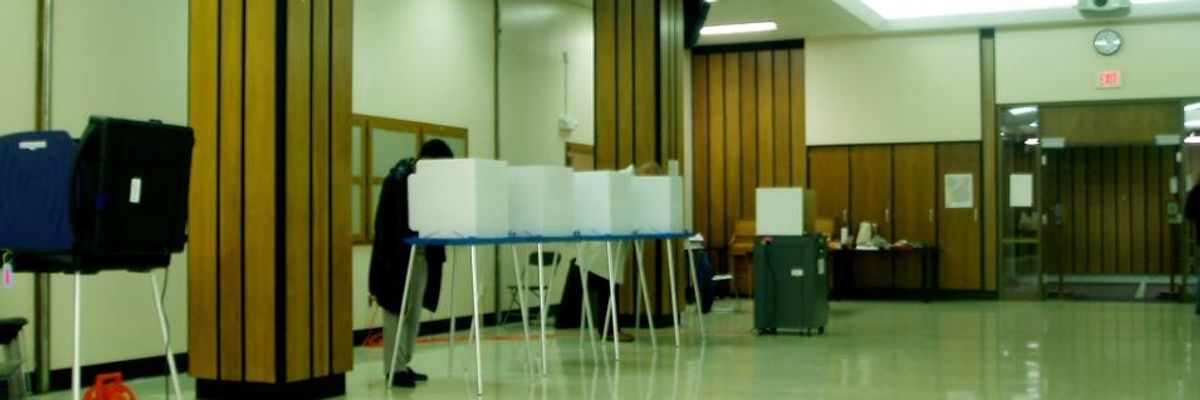Making clear its intent to disenfranchise voters, a predominantly black county in Georgia was unable on Wednesday to prove that its reason for proposing the closure of seven of its nine polling places was that the locations are not accessible for people with disabilities.
As the Huffington Postreported, Randolph County officials produced no documentation that the polling places failed to comply with the Americans with Disabilities Act (ADA), as the county claimed last week.
About 60 percent of Randolph County's residents are black, and a third live below the poverty line. The county voted for Hillary Clinton by 11 points in the 2016 presidential election.
Those factors, outraged voting rights advocates say, were what made a consultant--whose hiring was pushed by Secretary of State and Republican gubernatorial candidate Brian Kemp--suggest that the county close almost all of its polling places.
The fact that Kemp will be running against former state House Minority Leader Stacey Abrams, a Democrat who would be the country's first African-American female governor, is also behind the move, critics say.
"This is a cynical deployment of the ADA as a bludgeon against the rights of people of color to get equal access to the ballot. It should not be tolerated." --Sasha Samberg-Champion, civil rights attorneyBut the consultant, Mike Malone, claimed at a meeting with voters last week that the closures resulted from the locations' failure to provide adequate parking and safe bathroom access for voters with disabilities.
"Folks, I will tell you right now, your polling places are not ADA-compliant, period," Malone said. "You have to have compliant polling places."
The Huffington Post requested records showing that the polling places do not comply with the ADA, but Randolph County responded to the request empty-handed.
"There is no document, report, or analysis studying the handicap accessibility of polling places in Randolph County and the cost of fixing them within the time frame specified in your open records request," Hayden Hooks, an attorney with the firm that represents Randolph County, wrote in an email to the outlet.
"You'd think, if you're going to adopt a change that could potentially disenfranchise voters, that you'd have a strong justification backed by research," John Powers, an attorney with the Lawyers' Committee for Civil Rights Under Law, told the Huffington Post. "However, there's absolutely no evidence of that here."
Sean Young, legal director of the American Civil Liberties Union of Georgia, added that the county's excuse proves the effort is a "sham" and said his group has threatened to sue the county if it proceeds with the unlawful closures.
"This is not about ADA compliance," Young told the Huffington Post, "because if it were, they would have produced a study or analysis of what they believe are ADA violations and what can be done about them."
On Twitter, civil rights lawyer Sasha Samberg-Champion debunked the claim that the locations had to be closed and demanded that Malone's proposal be defeated.
Critics like Samberg-Champion are hoping a county commission will overturn the county's decision, while voting rights advocates have vowed to start a petition drive to keep the polling places open.

